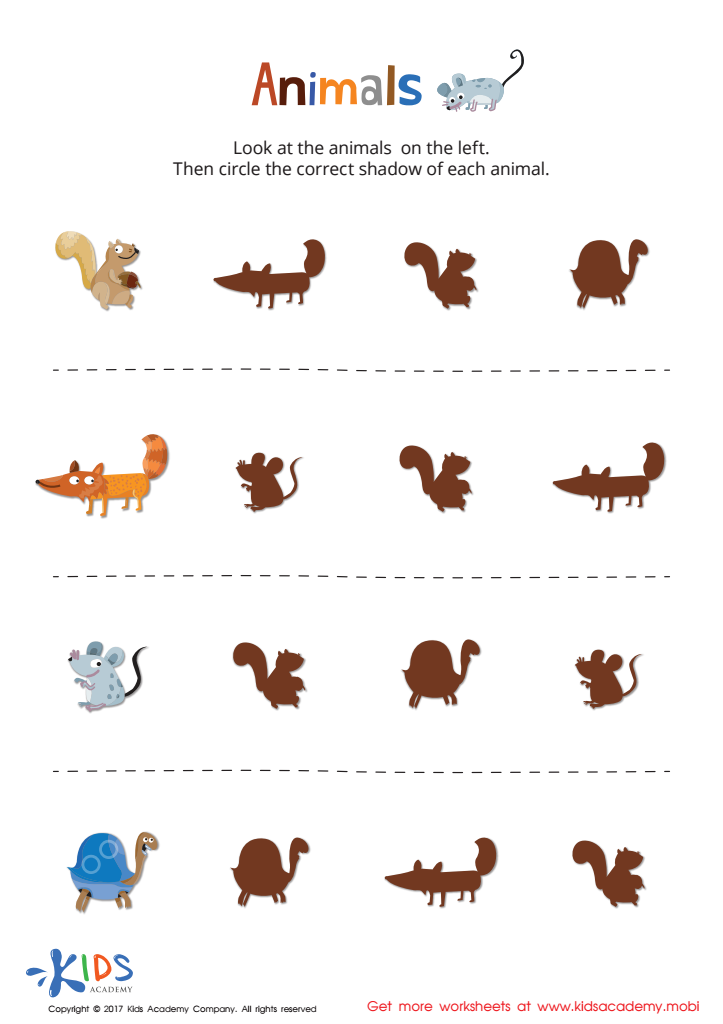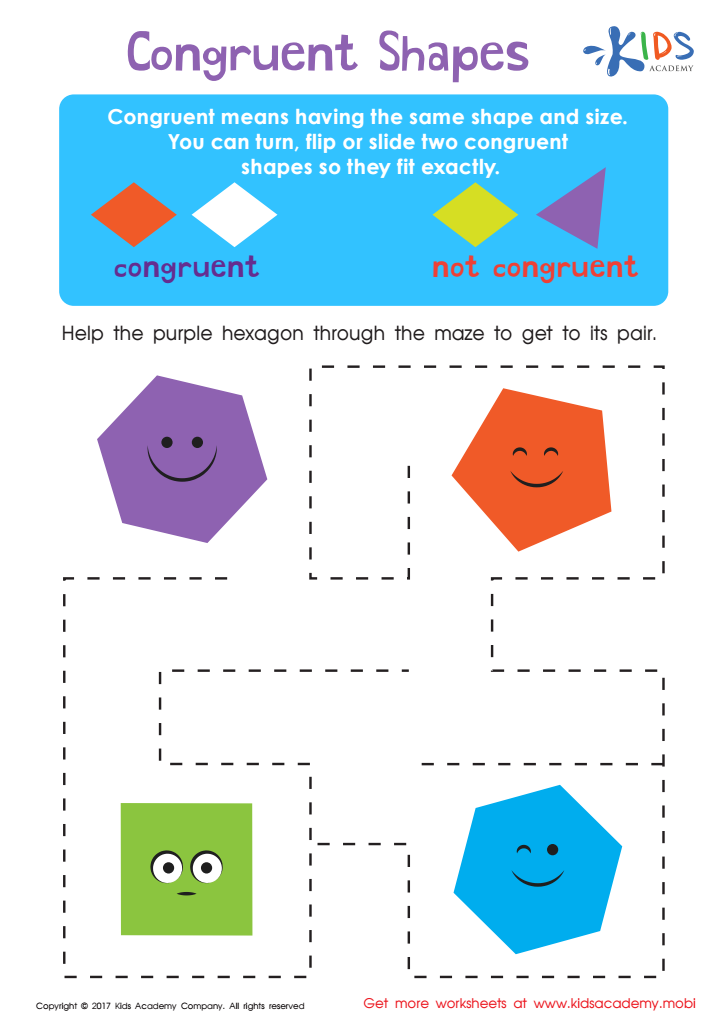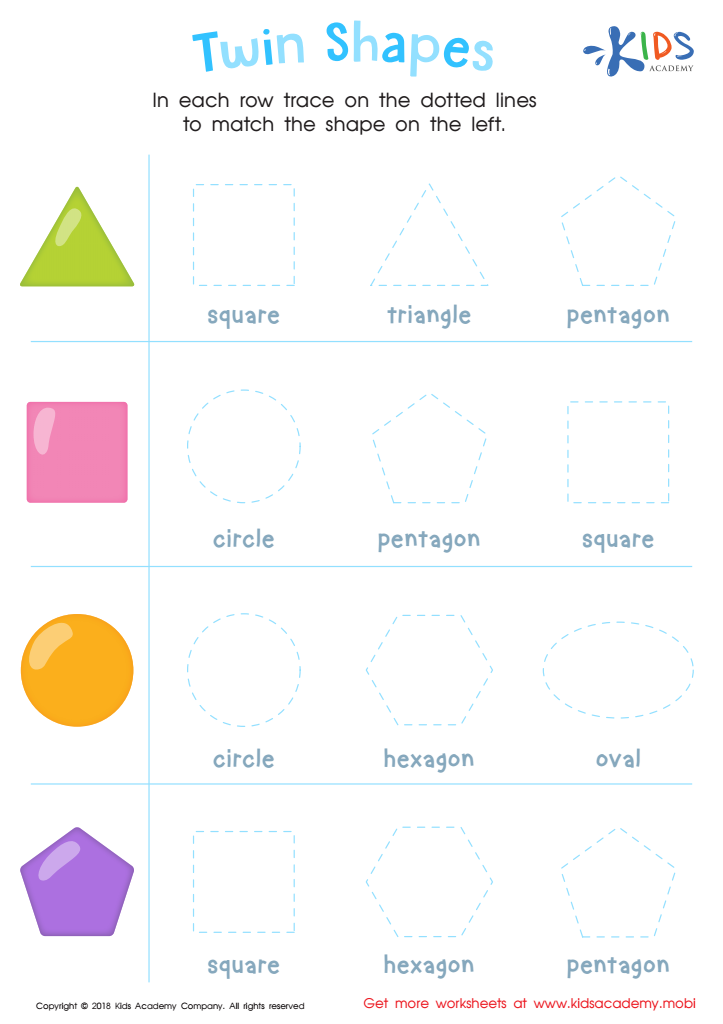Visual discrimination Extra Challenge Geometry Worksheets for Ages 5-7
3 filtered results
-
From - To
Discover our "Visual Discrimination Extra Challenge Geometry Worksheets" designed for children aged 5-7, available for easy download! These engaging worksheets help young learners develop critical visual discrimination skills essential for geometry and overall mathematical understanding. Through exciting, interactive exercises, kids will improve their ability to identify shapes, recognize patterns, and differentiate between objects, all while having fun! Aligned with early learning standards, these worksheets are perfect for both classroom activities and homeschooling. Foster your child's confidence in geometry and enhance their visual perception with our expertly crafted challenges tailored to spark curiosity and creativity! Start their educational journey today!


Animal Shadows Sorting Worksheet


Congruent Shapes Worksheet


Twin Shapes Dot-to-Dot Worksheet
Visual discrimination is a crucial foundational skill for young learners, particularly in the context of extra challenge geometry for ages 5-7. During this developmental stage, children are cultivating their abilities to identify similarities and differences, which encompasses recognizing shapes, patterns, and spatial relationships. Engaging in visual discrimination challenges enhances their cognitive skills, improves their attention to detail, and fosters critical thinking.
Parents and teachers should care about these activities because they serve as a springboard for greater mathematical understanding and future academic success. Geometry forms the basis of many advanced mathematical concepts, and instilling a strong sense of spatial awareness in early education can seamlessly transition into more complex ideas later. For instance, children who excel in visual discrimination will find it easier to understand concepts like symmetry, congruence, and fractions as they progress.
Moreover, engaging children in these playful challenges cultivates curiosity and a love for learning, equipping them with the confidence to approach problem-solving tasks. By prioritizing visual discrimination in geometry, educators and caregivers can help children build essential skills that extend beyond math, enriching their overall learning experience and better preparing them for future academic pursuits.
 Assign to My Students
Assign to My Students
















